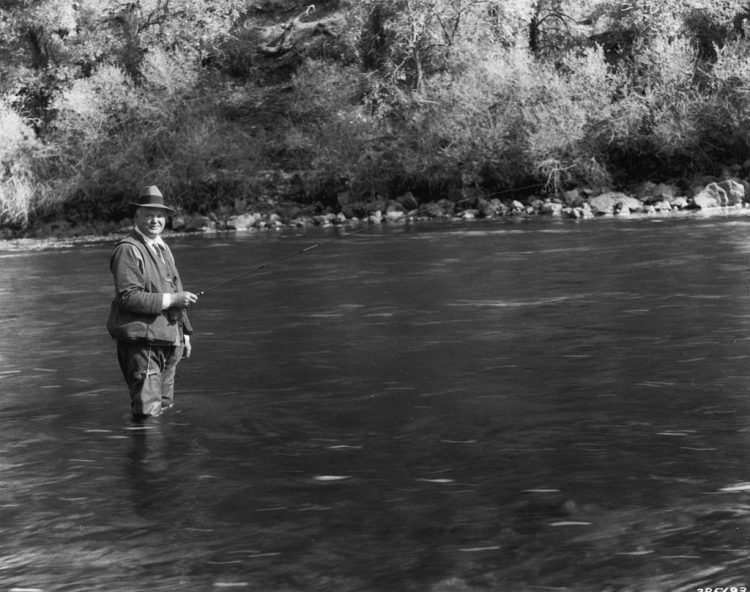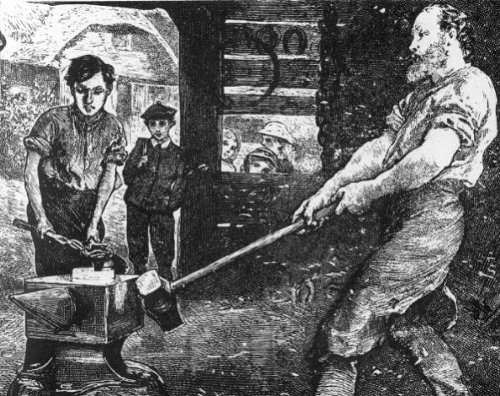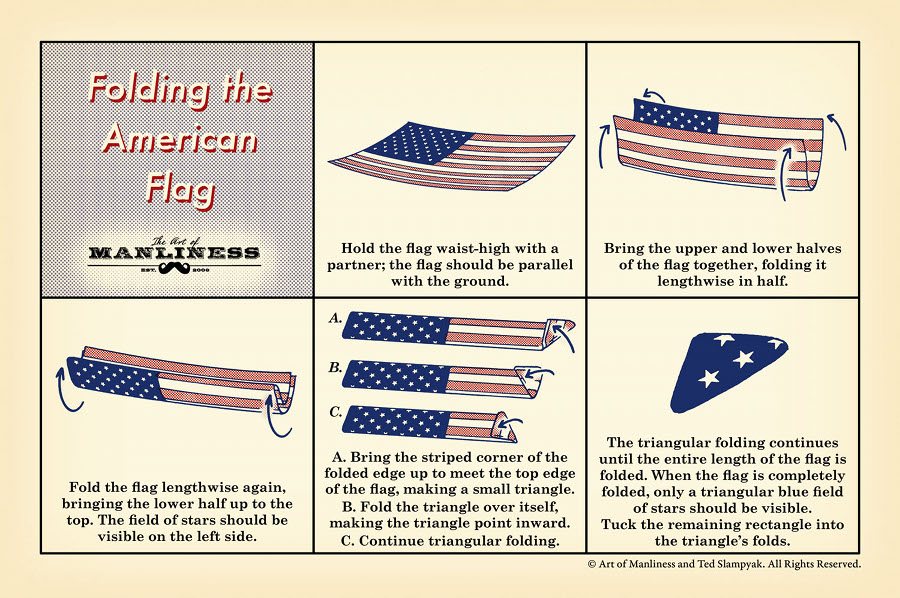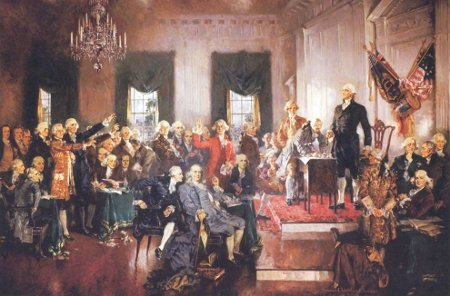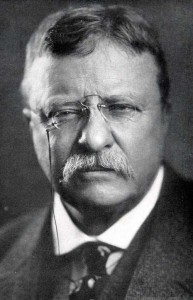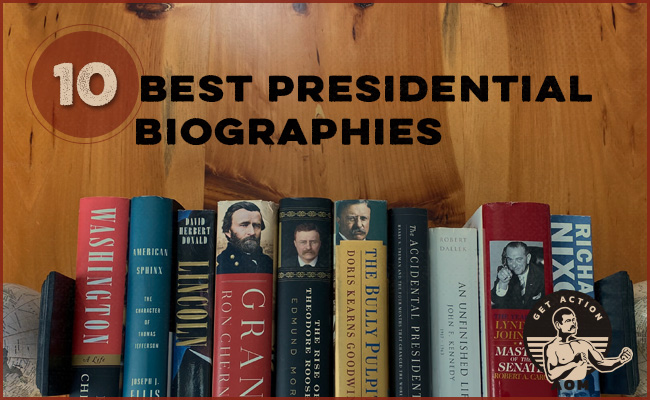
In 2017, I embarked on a project of reading a biography of every American president. Forty-five men and over 25,000 pages later, I finally finished just before Joe Biden assumed the helm. It wasn’t an easy task, and certainly sometimes dull (especially through long parts of the 1800s), but always intriguing and unendingly fascinating.
As with all biographies, the books were full of life lessons. Though these presidents attained the highest office in the land, they also dealt with obstacles and issues that are universal to the human condition — upbringings that were more or less loving, weighty decisions and crossroads, death and sickness, love and betrayal. They all had personal idiosyncrasies that aided or hindered their rise, and allowed them to do better and worse jobs while in office. The power they held really only amplified and brought into relief the potential and pitfalls we all share, and I found plenty of takeaways from their lives (and highlighted one in particular for each president on my Instagram page).
At the same time, the biographies also, of course, broadened and enriched my understanding of the course of American history in general, and of the ups, downs, and evolution of this country’s politics in particular. Because of my reading, I’m better able to place the crazy political climate of today into context.
Though I personally found my reading project a real boon, I doubt there are many who have quite the same appetite for presidential biographies. And that’s quite alright, as you can garner much of the same benefit by reading just a fraction of these books. If you’re interested in reading about the presidency and the remarkable characters who’ve held the office — if you’d like to gain a deeper understanding of our nation and how we got to here — below I present my 10 favorite POTUS biographies.
Washington: A Life by Ron Chernow
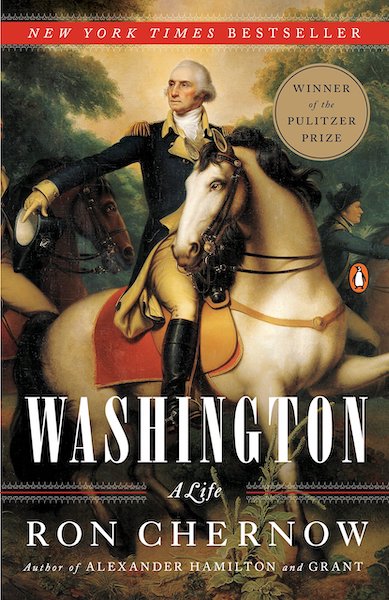
There have been thousands of books published about George Washington, the first appearing nearly right away after his passing in 1799. Since then, there’s been a steady stream of award-worthy titles and series, including Douglas Southall Freeman’s 7-volume set from the 1950s and James Flexner’s 4-volume treatment which came about a decade later. (Each also has a single-volume abridgement!) So where do you possibly start with the man who set the most important precedents for the office of President of the United States?
For the modern reader, there’s no doubt that Ron Chernow’s Washington: A Life is where to turn. While Chernow’s books are long and admittedly intimidating (and aren’t exactly easy reads), he’s indisputably a master storyteller who has a knack for cracking the inner psyche of his characters better than nearly any biographer I’ve encountered. Washington inevitably retains some of his stone-like stature, but Chernow chips away at it better than most in order to reveal the human being inside. Washington: A Life is an incredibly rewarding read which will leave you certain that George Washignton was the perfect man to be America’s first president.
American Sphinx by Joseph Ellis

Thomas Jefferson has become the poster boy of public opinion’s changing tides in regards to the Founding Fathers. For nearly 200 years he was revered without reservation; but as his relationship with his slaves came to light in the last couple decades, Jefferson has swung the other way almost towards villainy. So which is it, hero or scoundrel? To read any biography of our third president is to understand what an enigma he was; even historians who have spent their careers studying the man have ultimately found him to be, as Merrill Peterson puts it, “impenetrable.”
Suffice it to say, modern readers have no shortage of options for digging into Thomas Jefferson’s life. I began with Jon Meacham’s The Art of Power, which was a very good place to start. I also found our third president “impenetrable,” though, and so continued on to Joseph Ellis’ fascinating and enlightening American Sphinx. Less a cradle-to-grave biography than a series of essay-like chapters on Jefferson’s life, this book gets at the heart of what has made the man so appealing and, as of late, so pilloried. Inside its pages, you’ll find treasures about character, independence, and America’s contradictory founding legacy.
Lincoln by David Herbert Donald
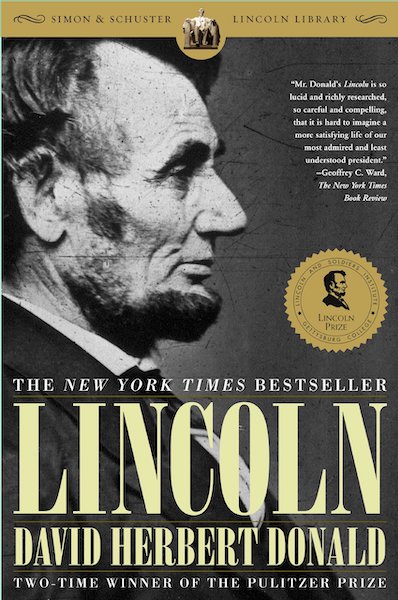
How does someone possibly pick a single book to study up on the most written about man in American history? It’s a tall task, to be sure. Estimates put the number of published books about him at around 16,000, with more and more hitting shelves each year. From dual biographies (of, say, Lincoln and John Brown, or Lincoln and Frederick Douglass), to his frontier boyhood, to his parenting, and even to his specific speeches, you can find books on just about any aspect of Lincoln’s life and presidency.
The job of picking a biography among this trove is actually made a little easier when you focus on cradle-to-grave biographies and not those that narrow in on a single element. If you’re looking for a one-volume option, there’s a general consensus among both readers and historians that David Herbert Donald’s Lincoln or Ronald White’s A. Lincoln are where to turn. I read Donald’s work and immensely enjoyed it. Given the enormity of the man, the book’s 600 pages seemed to go by in a flash, and every period of Lincoln’s life is given the proper space — some give too much time to his youth; some give too much to the war years; Donald nailed a perfect balance.
If a really deep dive is what you’re after, Michael Burlingame’s two-volume Abraham Lincoln: A Life will keep you busy for a while, as will Sidney Blumenthal’s series — of which three of a proposed five volumes are currently done.
Grant by Ron Chernow
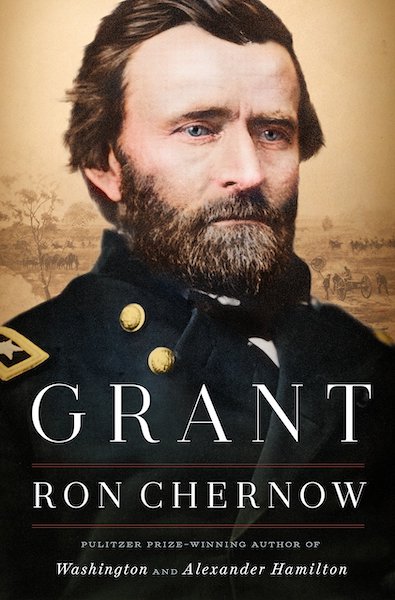
Though ignored and written off for a long time as a bad president, Civil War general-turned-politician Ulysses S. Grant has been re-invigorated in a handful of major biographies in the last decade or so. While there are a number of quality options, Ron Chernow’s epic, 1,000-page Grant is impossible to beat. The best biographies are those that not only reveal their subject, for both good and bad, but also provide a moving and even inspiring reading experience. Grant does that in spades.
The psychological penetration that Chernow achieves is eye-opening and often rousing. A number of biographers have captured the war years quite well — it was a dramatic period that just isn’t too hard to make exciting and evocative. The real trick is to capture Grant’s eight years as president with the same verve, which the master historian undoubtedly does. As with the other Chernow title on this list, it will take some dedication, but the effort is well worth it. Grant, in my opinion, is Chernow’s best book.
The Rise of Theodore Roosevelt by Edmund Morris
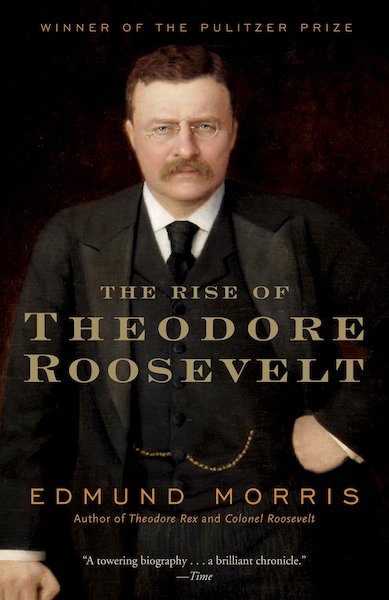
America’s most charismatic president has been written about extensively and unendingly since the day he died. It takes a talented writer to fully capture Roosevelt’s energy and vitality — something that only a handful of historians have really done. For the complete picture, you simply cannot beat Edmund Morris’ epic and stirring trilogy: The Rise of Theodore Roosevelt, Theodore Rex, and Colonel Roosevelt.
In a Top 10 article, however, I didn’t want to officially take up three spots with the trilogy, so I picked the first volume, which details Roosevelt’s path up until the day he became president (a shorter path than any other president; he remains our youngest POTUS). From the very beginning, Morris captures the reader’s attention and brings us breathlessly along from TR’s aristocratic upbringing and meteoric rise in politics, to the heartbreaking loss of his first wife and subsequent time in the literal wilderness, and back again to Washington, DC as a politician with some serious life experience. You could read The Rise of Theodore Roosevelt on its own and get a fuller picture of the man than a lot of one-volume cradle-to-grave bios would offer. And I can pretty much guarantee you’ll be sucked in enough to read the other two volumes.
It’s worth noting that Candice Millard also captures the strenuosity of Roosevelt in documenting his post-presidency travels to South America in her thrilling book, River of Doubt.
Bully Pulpit by Doris Kearns Goodwin
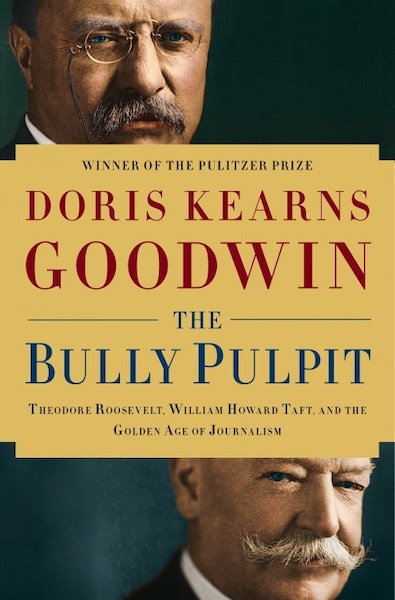
I came to have quite a soft spot for our 27th president, William Howard Taft, after reading about him in Doris Kearns Goodwin’s The Bully Pulpit. Theodore Roosevelt actually gets top billing in the subtitle of this book, but I imagine that has more to do with the publishing marketing machine than the content of the book, which is more about Taft and his relationship with TR. It certainly functions quite well as a biography of Big Bill.
As Doris Kearns Goodwin often does, she weaves in a number of tangential plot threads, but always comes back to the tender-turned-fraught relationship between TR and Taft. It’s a wonderful read with a compelling narrative and a number of inspiring takeaways. I’m glad Goodwin chose to give William Howard Taft the spotlight here; hardly any other biographers or historians have.
The Accidental President by AJ Baime

Though David McCullough’s Truman is often cited as one of the great presidential biographies (which it is!), AJ Baime’s more efficient volume is actually the POTUS bio I recommend most to average readers. Distilled into 360 jam-packed pages of inspiring leadership and unbreakable character, Baime shows us that Truman was one of the truly decent men to have held the office of President of the United States.
Spending the entire first chapter on April 12, 1945 — the day FDR died and Truman became president — Baime sets the scene for how out of his depth the Missouran really was. The reader then gets a bit about Truman’s beginnings, before embarking on the bulk of the book, which focuses on the spring and summer months of 1945 as WWII approached its end on both the European and Pacific fronts. You’ll most certainly come away from The Accidental President with a greater appreciation of who Harry S. Truman really was.
An Unfinished Life by Robert Dallek

With John Fitzgerald at the center of the Kennedy universe, nearly every member of the family has been studied and written about a number of times — grandparents, parents, children, and all eight of his siblings. The books about them could fill entire shops. Perhaps surprisingly, though, comprehensive biographies of John himself are somewhat of a rarity. A number have been started and abandoned due to uncooperative surviving family members (Jean Kennedy, the final living sibling, died just last year), unclassified top secret documents (much of his presidency, and especially his death, was shrouded in secrecy), and his famously impenetrable inner psyche.
Robert Dallek penned what I believe to be by far the best treatment of JFK with An Unfinished Life. While unsparing in detailing the flaws of Kennedy’s personal life, Dallek unveiled for the first time the depth of his debilitating medical problems and also offered a well-balanced and dramatic account of his 1,000 days as president.
One more book worth mentioning in regard to JFK: William Manchester, famed biographer of Winston Churchill, wrote an oft-overlooked account of his death in 1967’s The Death of a President. It doesn’t get the same attention as Manchester’s other books, but is just as expertly written.
Master of the Senate by Robert Caro

When it comes to the art of presidential biography, there is Robert Caro and there is everyone else. After writing his first (and now classic) biography on New Yorker Robert Moses 50 years ago, Caro has dedicated the decades since to studying the mechanics of power through the inimitable character of Lyndon B. Johnson.
Through four volumes and more than a few thousand pages, Caro profiles not only Johnson, but also the major characters who surrounded his life and political rise, and even the hardscrabble Texas landscape itself. The best of the series (so far) is a title that can be read on its own: Master of the Senate. This third volume details the years between 1948 and 1957, when Johnson displayed a mastery of the United States Senate not seen before or since. It’s not an easy book to get through, but the prose is often jaw-droppingly good and I can guarantee it’ll be among the more memorable reading experiences of your lifetime.
Amazingly, Caro has yet to finish his epic series. He’s hard at work on the fifth and final volume, which means that readers only get through Johnson’s first year or so of the presidency. To get the full life in a single volume, Randall Woods’ LBJ is very good.
Richard Nixon: The Life by John Farrell

Humans love to not only study and learn from failure, but gawk at it too. Given Nixon’s place in the pantheon of disgraced presidents, there’s been a lot of books about the man. The true task of any Nixon biographer goes beyond presenting the unflinching truth (and uncovering the question of why he did what he did), but also in providing context from his boyhood, innate personality, and learned behaviors to not necessarily inspire sympathy, but at least understanding. No man is one-dimensional, Richard Nixon included.
The biographer who unveils the true man best, in my opinion, is John Farrell in Richard Nixon: The Life. The narrative is remarkably readable and penetrative; there were, no doubt, clues throughout Nixon’s life that he would be a gifted politician but also a nefarious one, willing to do just about anything in order to win. Farrell certainly doesn’t explain away Nixon’s failures, but he does provide the nuance needed to come away from the book with a more complete picture of our 37th president. Plus, the Watergate drama makes for flat-out gripping reading.
Keep up with all my presidential reading (and other reading, too) by subscribing to my weekly books newsletter. Coming soon is a roundup of all the bios I read for this project over the last few years.
Tags: Books


